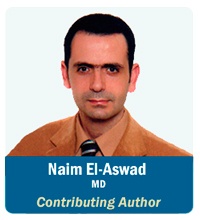 [5 MIN READ]
[5 MIN READ]
With the concept of physician burnout taking center stage, questions have arisen regarding the factors affecting it, either positively or negatively. One particular factor that has been the topic of research is the use of electronic medical records (EMRs), specifically the link, if any, between EMRs and physician burnout.
This blog will hopefully answer these questions definitely: EMRs are a causative factor of burnout. These two quotes are fitting in this situation:
“People who lose their way lose their why.” Michael Hyatt
“Burnout cannot exist where purpose lives.” Matt Manero
There are perhaps several ways to answer the question about the link between EMRs and burnout, but we will examine it focusing on the purpose of medicine:
“Medicine arose out of the primal sympathy of man with man; out of the desire to help those in sorrow, need, and sickness.” William Osler
So strong is the purpose of medicine that physicians dedicate their time, effort and life – both personally and professionally – to the service of others. In doing so, physicians get their primary and most impactful reward from interactions with their patients and the success of their profession. That profession is based on the three pillars of interaction between physicians and their patients: cognitive, emotional, and behavioral. To put it another way, the purpose of physicians is to be able to interact with their patients, connect with them, diagnose their problems, and most important of all, solve their problems. Their reward is patient outcomes and their feedback and interactions with them. That is why so many studies have shown this to be true – the more time physicians spend with their primary source of purpose (their patients), the more engaged and fulfilled they become and the less burned out they become.
It follows that anything that takes away from that simple truth will distance physicians from their purpose. The converse is also true – any tool that enhances this truth will help physicians become engaged and fulfill their purpose.
With that in mind, let’s examine how the literature has answered the question of the link between the use of EMRs and physician burnout. First, allow me to summarize the four factors that lead to burnout:
- Unmet expectations
- Lack of control
- Insufficient rewards
- Leadership
 EMRs directly impact burnout in a negative way. There is enough evidence in the literature – both objective and subjective – showing that the use of EMRs is one of the top 5 causes of physician burnout; the main reasons for this are as follows:
EMRs directly impact burnout in a negative way. There is enough evidence in the literature – both objective and subjective – showing that the use of EMRs is one of the top 5 causes of physician burnout; the main reasons for this are as follows:
- EMR falls under three categories:
- “Lack of control” (no control over what physicians can and cannot do)
- “Insufficient rewards” (physicians signed up to treat patients, not their charts)
- “Unmet expectations” (obviously, dealing with their patients, not their records)
- Increased time spent with patients has been shown to be a direct cause of physician engagement. EMRs minimize time with direct patient contact as physicians spend more time on EMRs than ever before. So it follows that the more user friendly and efficient the EMR system is, the more time physicians will have with their patients, thus causing physicians to feel more engaged. Recent studies have shown that internal medicine residents spent 11% of their time with their patients, and around 50% on their computers!
- EMRs minimize free time for the physician. Physician “date night” is Saturday between 8:00 pm and 2:00 am; this is the highest spike in EMR use by physicians. So instead of spending time with their families and enjoying recreational activities, physicians spend more of their free time/family time with their EMRs. The bottom line is that EMRs take physicians away from professional and personal time.
- Improving EMRs to make them more user friendly, efficient, and structured to minimize physician burnout has been the focus of several government and private agencies as well as several state medical agencies.
- Most physicians are not satisfied with their EMR experience. EMRs have led to:
- Information overload
- Frequent interruptions/distractions
- Change in the content and meaning of professional work
- Physician frustration and burnout
- More physicians leaving their practice
- Less adequate bedside training
- Worsening patient-physician experience
- EMRs have succeeded in:
- Increasing the clerical burden on physicians
- Changing the physician-patient interaction
- Distracting from the more meaningful aspects and callings of practicing medicine
Putting this information into perspective, all of these reasons accentuate how EMRs drag physicians away from their purpose. Read the two quotes at the beginning of this blog again to help grasp how EMRs have contributed directly to burnout.
Let’s pose the following question: What do you think would happen if EMRs were designed in such a way that they maximize the time spent with patients and free time, and minimize the time spent on computers? The answer to that question makes it clear how to make the problem a solution.
Goethe said: “Treat people as if they are what they ought to be and you help them become what they are capable of becoming.”
In other words, allow physicians to practice their purpose and you allow them to be the best they can be – more engaged and less burned out!
Finally, EMRs are tools for physicians. Personally, any tool that will keep me from my patient will interfere with my interaction with my patients, keep me from my family and personal time, and affect my ability to uphold my professional oath, all of which lead to frustration, distraction from my purpose as a physician, and ultimately burnout.
The profession of medicine is sacred. Physicians help people in their time of need, interact with them when they are most vulnerable, and share a bond with patients that is at its core built on goodness and primal sympathy.
“The profession of medicine is an art, not a trade; a calling, not a business; a calling in which your heart will be exercised equally with your head.” William Osler
EMRs have so far succeeded in being a causative agent for causing physician burnout. This is where our sacred profession is right now:
- 300-400 physicians commit suicide every year because of burnout.
- Fewer and fewer people are enrolling in medical schools. Most physicians would prefer that their children not go into medicine.
- One-third of physicians currently working plan to change professions in the next ten years.
- Only 10% of physicians recommend medicine as a career!
- Physicians leave for corporate medicine, voluntary work, etc., seeking meaning and purpose in their profession.
Perhaps the most frightening statistic of all: Over 50% of physicians are burned out!
Physicians cannot make others see their plight. This, however, does not mean they can afford to be blind to the truths of the link between EMR use and burnout. As it stands now, EMRs are a causative agent of physician burnout!


